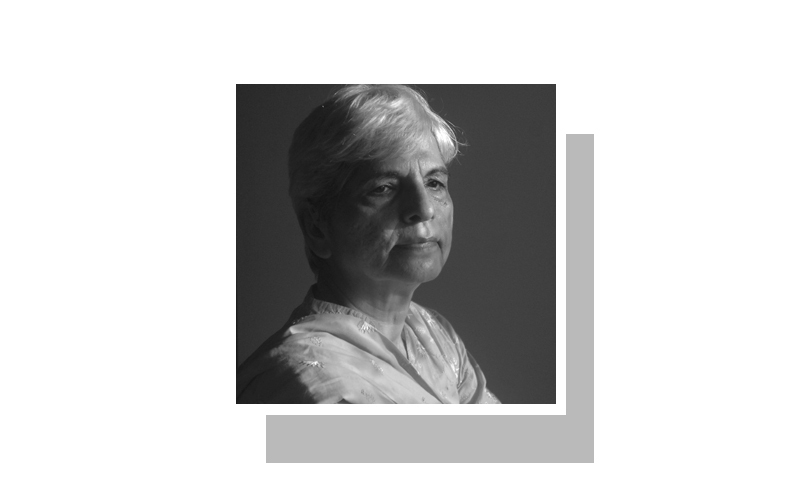DEMOCRACY is a misunderstood term that has been overused in the discourse surrounding the ongoing political drama in Islamabad.
There have been repeated references to democracy and human rights by the dharna leaders and legislators in parliament, which have only increased myths about these political concepts. No one speaks about the empowerment of the people which should be the aim of democracy — to enable citizens to help themselves and win their rights. This idea appears alien to Pakistan. People’s empowerment is possible without actually bringing about a revolution.
Thousands of miles away from home, I find business to be as usual in Glasgow, a city at present in the grip of Scotland’s independence referendum debate. For me this was an opportunity to observe the Scottish way of life. Last Saturday, courtesy Irene, to whom I had been introduced earlier, I spent some time at the ‘Open Day’ of the Berridale Allotments and Gardens which is a project that can be emulated by us with due indigeni\sation to empower urban women.
Glasgow, a city of nearly 600,000 with an area of 175 square kilometers, has translated into practice the concept of public ownership of the commons. The city council has earmarked on state land 26 ‘allotments’ — areas leased to people for gardening purposes — half of which are managed by private associations. The council describes the benefits of an allotment as providing opportunities of socialising, relaxation, exercise, and economical food production, especially organic food.
Land strips should be given to women to grow food for their families.
Berridale is one of these. With 51 members, it covers an area of one and three-quarter acres. The members pay an annual fee of £67 to provide for the overheads and other facilities. They gathered last week to compete for prizes for the best products ranging from exotic sunflowers to giant-sized carrots.
Why can’t we have such Berridales in our cities if the amenity plots that have not already been grabbed by land-hungry builders are marked for a similar purpose and allotted to poor women living in the vicinity to cultivate food for their families? Going by the claims of experts, this should not require too much space. Najma Sadeque of Shirkat Gah’s Green Economics had organised a workshop some years ago to demonstrate how a kitchen garden can be feasibly grown in the balcony of an apartment.
We have been crying for land reforms for decades now. The resistance by political parties led by the feudals and the Supreme Court’s foot-dragging on the petition of the Awami Workers Party to have the Sharia court’s 1990 ruling that declares land reforms un-Islamic annulled makes it unlikely that massive land holdings will ever be redistributed. The struggle for land reforms has to continue.
Meanwhile, the allotments idea should be considered seriously. If small plots of urban land are leased out to underprivileged women and stringent conditions attached to their use, there is no reason why they would not obtain some relief from poverty and why their children should not be better fed.
Of course, the scheme must be properly regulated. The holdings should be given to women only — they have proved more trustworthy in many microcredit projects — and the land should not be transferable under any condition. There should be no question of commercialisation. The maximum sale transactions permissible should be to fellow members who cannot meet their own and their families’ needs.
Given their track record, the KMC/local bodies cannot be expected to execute the scheme in its true spirit. They can at least be asked to lease small plots of land specifically meant for growing vegetables to philanthropists and community-based organisations. The idea should be to create facilities for growing food crops to promote food security.
This may require the managers to donate and raise funds for providing some basic infrastructure such as a reservoir for water storage, seeds, manure and agricultural implements. The place should be run as a cooperative with female tenants being encouraged to contribute a modest monthly amount to sustain the management subsidised by donations. The more enterprising members could always be motivated to benefit from classes on gardening and agriculture.
These Berridales would help make our cities green. For instance, Karachi already plays host to many plant nurseries located on traffic islands or roadside land. I do not grudge them. After all, they brighten up the environment. The planters run their tiny gardens primarily as commercial concerns.
The land strips for women should not be commercialised. They should be food-growing factories to feed the children of the women who cultivate them. Since the land involved would not be of a massive size it should not tempt greedy builders into grabbing it to construct multistoreyed apartment complexes or shopping malls.
For the Good Samaritans in our midst this should be an opportunity to help women help themselves while giving them self-esteem.
Published in Dawn, September 10th, 2014












































